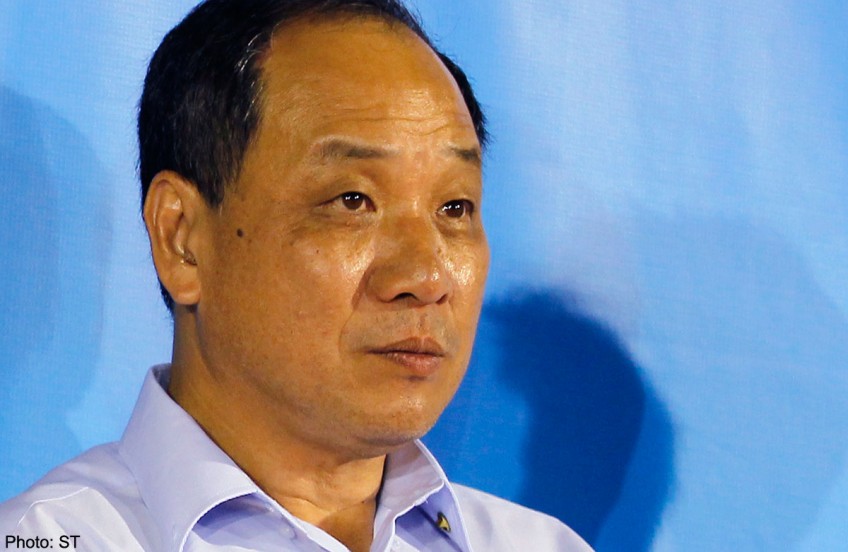Exchange raises questions on role of opposition

SINGAPORE - Yesterday's rare verbal sparring between the two leaders of the elected parties in Parliament was fascinating to watch.
Indeed, the other members of the House sat silent, enthralled as the action unfolded for 15 minutes.
But the exchange also raised important questions for both parties, and for voters about the role of the opposition in an environment of constructive politics.
Prime Minister Lee Hsien Loong, in outlining in detail what is needed to have constructive politics, accused the Workers' Party (WP) of not meeting expectations of what an opposition should be.
In strongly worded criticisms of the first opposition party to win a GRC, PM Lee said in no uncertain terms that the WP is a substandard party, with no alternative policies, and no clear stand.
He said that while the WP may not have all the resources at hand to design specific schemes, it does "have a responsibility to say which direction are we going and that direction has to be set clearly".
It has to explain to Singaporeans what the party stands for, and that cannot simply be what the People's Action Party (PAP) is doing "and a little better".
"That means you have no stand. Whatever the PAP's standing, ask them to do better. That's easy, I can do that too," he said.
What the opposition should be doing in a First World Parliament, he said, using the WP's own slogan in the 2011 General Election against it, is stating clearly in principle "what are the big issues which deserve to be debated and not elided over and avoided in the House".
The issue of constructive politics, and what it is, has been a hot topic of debate over the last three days.
It began with President Tony Tan Keng Yam's call in his May 16 address for constructive politics that puts the interests of the nation and people first, and where after vigorous debates, opposing parties move on together.
But WP secretary-general Low Thia Khiang turned it around, criticising the PAP Government for not creating the environment for constructive politics. He also called for changes to inculcate the right political values, have a more conducive political culture and strengthen trust in public institutions.
That drew a slew of rebuttals from PAP MPs, including Senior Minister of State for Law and Education Indranee Rajah on Monday, Dr Janil Puthucheary (Pasir Ris- Punggol GRC) on Tuesday, and Mr Hri Kumar Nair (Bishan-Toa Payoh GRC) yesterday.
They accused the WP of playing "sound-bite politics", of having questionable integrity in handling town council issues and of lacking alternative views.
Mr Nair said: "No plan or policy is ever perfect or benefits everyone in the same way - and so it does not take any particular genius to think of criticisms. And proposing alternatives means giving details. Making meaningless motherhood statements is not an alternative 3M framework."
While the PAP has made its stand on the WP clear, and the WP has countered its claims, what is less clear is whether the demands the PAP has made of the WP are ones that resonate with voters.
When Mr Lee remarked that "the Workers' Party approach has been to be... low profile in Parliament but come election time, to turn into tigers and heroes", Mr Low offered his mock appreciation.
"I'm sure the PAP can too. You are the Government and you have been the governing party for 50 years and you've got much more... talented people than the Workers' Party," he said.
Indeed, this is a point that matters in the question of what the opposition should be.
Where some may agree with the PAP that the WP has on the whole been a disappointing opposition in Parliament, others may see a small party that is still growing, still finding its way, and which needs to be given time.
While some may want a battle of equals, others see a heavyweight boxer trying to pummel a welterweight.
There are 80 PAP MPs in the House compared to nine for the WP (seven elected MPs and two Non-Constituency MPs).
The WP has also maintained that it is far from ready to form an alternative government.
So it would seem the WP cannot yet match the PAP in terms of depth and breadth in policymaking, and perhaps also in vision.
But eventually, the WP, to be a truly credible opposition in Parliament, must be held to the high standards of politics that Mr Lee spelt out.
For now, voters may well be willing to lower the bar for the WP, in their desire for checks and balances against a long-dominant ruling party.
And so while Mr Lee landed several punches yesterday, Mr Low was able to dodge and parry, and did not get knocked out.
The question the WP has to contend with going forward, is how long more it has before voters too start to demand more of it.

This article was first published on May 29, 2014.
Get a copy of The Straits Times or go to straitstimes.com for more stories.